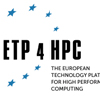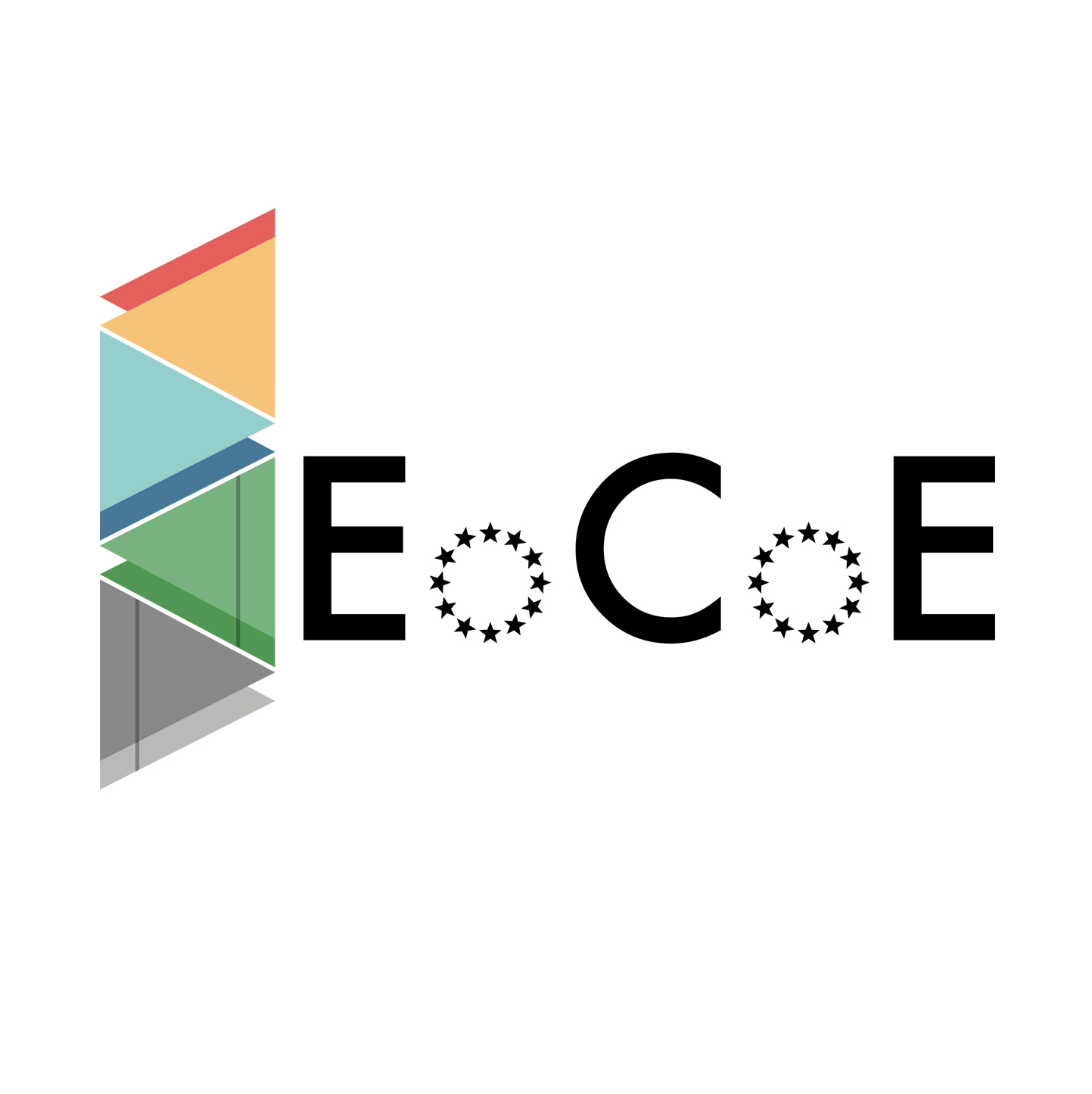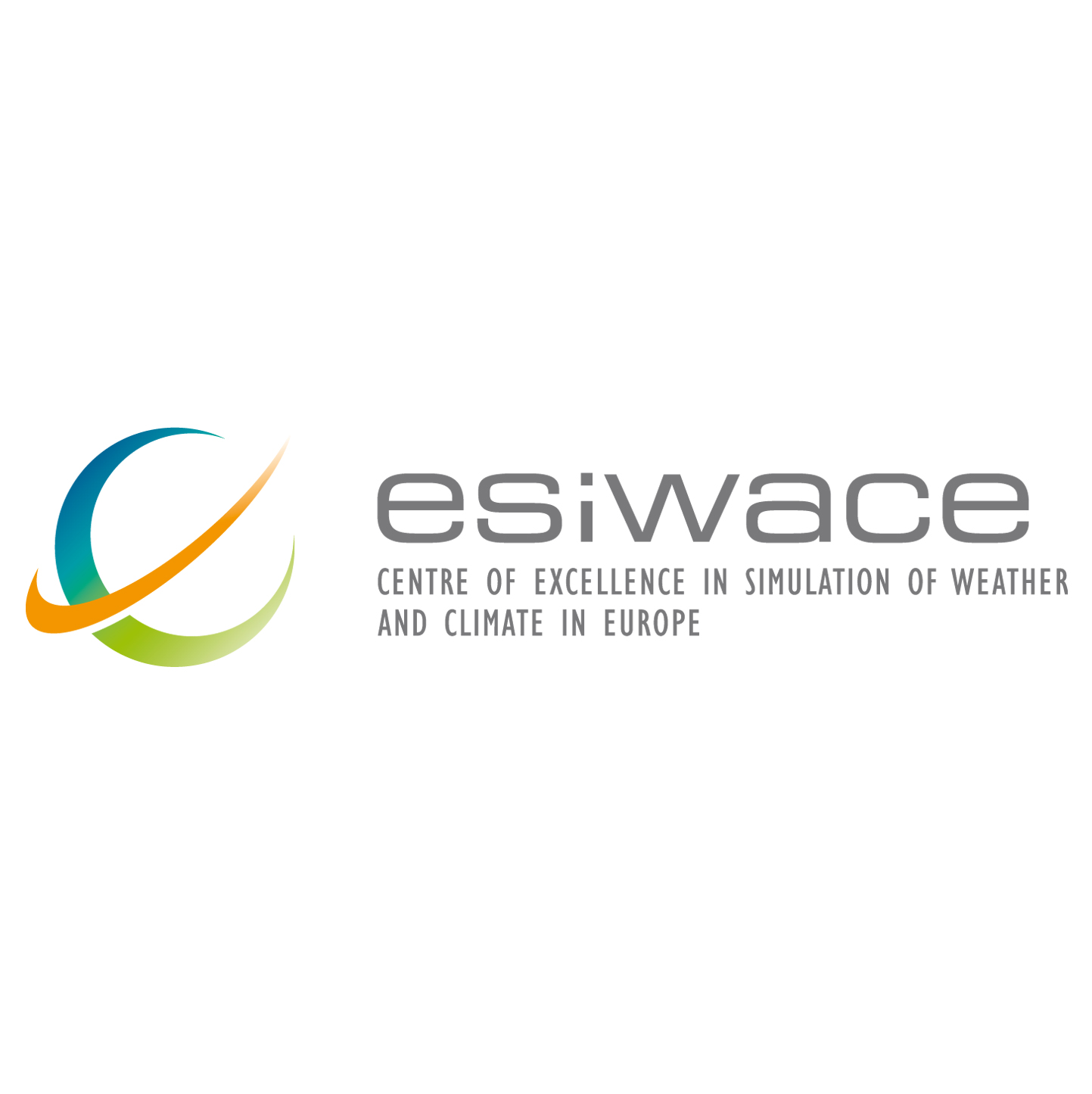HPC
So far, High Performance Computing (HPC) mostly focuses on computational intensive problems, such as computational fluid dynamics, weather forecast, astronomy as well as multi-physics simulations. For this purpose, the systems are shaped into a direction that enables highest performance to run simulations on hundreds of thousands of computational cores to solve the complex problems.
Read More
However, with the advent of advanced simulation systems and the resulting data correlation and analytics, high performance data analytics (HPDA) will be one of the major challenges. Therefore, the key performance indicators move into a data-centric computation direction: huge amounts of data have to be processed in an efficient, precise and fast manner, which requires assistance of HPC systems.
Within CoeGSS, the 5 Vs of big data will be explored by research and production service provisioning. Data volume, velocity and variety are addressed by different data sources and are complemented by value and veracity of highly secure and private data. Those novel paradigms will evolve HPC development using hardware and software co-design approaches with relevant vendors and thus, will significantly improve GSS related problems and decision making.
Close
GSS
Global Systems Science (GSS) is an emerging field of innovation with continuously growing relevance for industries and their decision makers, global politics with their various economies as well as academic sciences. Although most of the large problems could be broken down into smaller problem sizes, the markets based on social habits and economies change rapidly and therefore, require accurate results.
Read More
For this purpose, standard workstations are not suitable any more, a higher computational performance is mandatory to couple all the different data sources in order to obtain precise and fast outcomes to take correct decisions. Those complex simulations with different kinds of data lead to very complex simulations that require high computational power and in addition, a huge demand on data analytics functionality.
CoeGSS will take the described approach in order to create multi-dimension simulations for various problems. Especially with the help of synthetic populations, built for health habits, green growth, and urbanization, the demand for high performance computation and analytics is given and will therefore, evolve the fields of GSS.
Close
The Pilots
CoeGSS uses HPC to address three selected global challenges:
the diffusion of health-relevant social habits, the possibility of green growth, and the dynamics of global urbanisation.
These pilot studies shall show the feasibility and productivity of an HPC-based use of synthetic populations for the study of global challenges and shall help create a generic framework to generate such populations for a given GSS problem.
Many health conditions are caused by hazardous individual behaviours, such as smoking, overeating, substance abuse or unprotected sexual intercourse. Monitoring and forecasting the incidence of such behaviours in the general population represents a challenge for policymakers. Indeed, the future of healthcare in Europe will depend on how much the demographic change and the increasing elderly population will see a corresponding increase in conditions associated to risk behaviours.
Recent projections of the European Commission indicate that the estimated increases in healthcare spending due to an ageing population could be halved, if future gains in life expectancy are spent in good health. The main goal of this pilot is to create a synthetic population by integrating large and heterogeneous data sources that will describe the prevalence of health habits in Europe and explore their expected trends.
This goal will be achieved by integrating high-resolution demographic information, official population statistics, and dynamic models of social contagion. As a first case study, CoeGSS will address the prevalence of smoking, which is a top priority among health habits that have devastating consequences on the European society and the population well-being. Taking advantage of high-performance computing and developing novel algorithms to simulate the dynamics of the tobacco epidemic, the resulting system will be a powerful tool in the hands of policymakers to evaluate the impact of health programs and to increase their efficiency.
Green growth refers to increased well-being in the economic, ecologic and social dimensions. In the coming ten years, billions of people will spend an additional 30 trillions of Dollars on goods and services of all kinds; even larger amounts will be spent in the following decades. The fate of the planet depends on how this money will be spent. Worldwide, shifting preferences and policy incentives will foster initiatives for green growth – renewable energies, energy efficient buildings, healthy diets, green IT and more. The goal of this pilot is to develop a synthetic information system for identifying green growth opportunities and investigating how these can be seized, to provide analysis and advice on green growth for companies, public authorities, international organisations and the public at large.
As a first case study, CoeGSS will simulate the global fleet of cars. There are presently more than one billion cars on the planet, and there can be little doubt that this number will keep increasing. The question is at what speed, where and for what types of cars. The answer in turn depends on the strategies and decisions of businesses and policy-makers, and on technological and cultural developments. With the capacity of supercomputers, CoeGSS will construct synthetic populations representing those cars, their owners and other relevant agents. This method allows to model and to understand the global diffusion of innovations like different kinds of electric cars. It can later be adapted for studying the global dynamics of renewable energies, energy efficient buildings and the whole range of green growth opportunities.
Optimizing city development choices is an essential challenge for the future, driven by the growth of world population increasingly living in cities and the opportunities of more overall and complete approaches assisted by always more global and intelligent technological innovations. Cities are complexly defined by the interaction of processes as different as real estate, transportation, economy, society and politics. The goal of this pilot is to model cities and linked population dynamics concerning very different features – from opinion propagation to housing preferences or transportation behaviours – by using a global system science approach, coupling sub-models from different fields describing these different processes. Such models may correspond to very different time and space scales, going from hourly traffic congestion to long term city development.
Modelling city and population dynamics rests on individual’s multi-fold characteristics, particularly geographic location (e.g., concerning housing or transportation). Therefore the possibility of creating synthetic populations with realistic statistical distributions of characteristics’ values will prove precious for any simulation. It can permit furthermore to clarify influences between different elements of the city and point to possible or more efficient levers to improve cities’ everyday life. For instance, it will allow exploring the impact of development choices, or the precise two-way relation between price mechanisms and infrastructure decisions. It might also open the way to studying the effect of overall opinion and behaviour dynamics and to assessing the benefit of information campaigns or other public incentives.
GSS Projects
Global Systems Science portal at www.global-systems-science.eu

CIMPLEX
Bringing CItizens, Models and Data together in Participatory, Interactive SociaL EXploratories
We propose visionary research to develop modeling, computational, and ICT tools needed to predict and influence disease spread and other contagion phenomena in complex social systems. To achieve nonincremental advances we will combine large scale, realistic, datadriven models with participatory datacollection and advanced methods for Big Data analysis. In particular we will go beyond the onedimensional focus of current approaches tackling one aspect of the problem at a time. We will interconnect contagion progression (e.g. epidemics) with social adaptation, the economic impact and other systemic aspects that will finally allow a complete analysis of the inherent systemic risk. We will develop models dealing with multiple time and length scales simultaneously, leading to the definition of new, layered computational approaches. Towards policy impact and social response we will work to close the loop between models, data, behavior and perception and develop new concepts for the explanation, visualization and interaction with data and models both on individual and on collective level. We will cast the fundamental advances into an integrated system building on widely accepted open ICT technologies that will be used and useful beyond the project. As a tangible ICT outcome directed at facilitating the uptake and impact of the project, we will implement “Interactive Social Exploratories” defined as interactive environments which act as a frontend to a set of parameterizable and adjustable models, data analysis techniques, visualization methods and data collection frameworks.
Contact: Paul Lukowicz – Paul.Lukowicz@dfki.de

CONSENSUS
Multi-Objective Decision Making Tools through Citizen Engagement
Every realworld planning problem, especially in governance and policymaking, possesses several objectives that are typically subject to inherent conflicts with underlying tradeoffs to be discovered. Policy makers are in need of proper tools that will utilize an overall analytical process, that is, assist in modelling the realworld planning process, automatically obtain the best attainable tradeoffs, and facilitate efficient exploration in order to reach a final decision on which policy to implement. Consensus will strive to model existing realworld usecases within the relevant policymaking context, and consequently employ measurable quantifiers in order to investigate how and whether preferable tradeoffs can be identified. Those quantifiers will be sought in multiple realms – such as analytical models, numerical simulations, statistical tools and even public opinion evaluators – in order to link the domain data to the set of objectives, and by that to reflect the expected successrate of policies and their implementation. Furthermore, Consensus intends to investigate the balance shift of the objectives, in scenarios where certain resources are being deployed to primarily address one of them through EU or internationallevel policies. This investigation is meant to cover two important realworld usecases: the one dealing with Biofuels and Climate Change (EU Renewable Energy Directive), and the other dealing with Transportation Networks (transEuropean transport network guidelines).
Consensus will also seek the citizens’ involvement in policy making according to this scheme, since their input can potentially become highly valuable in various stages, from gathering the necessary data, through formulating public opinion as one of the objectives in the model, to eventually playing the role of exploring the attained tradeoffs and contributing to their weighing.
(no known active website)
Contact: Theodora Varvarigou – dora@telecom.ntua.gr

CRISIS
Complexity Research Initiative for Systemic Instabilities
CRISIS (Complexity Research Initiative for Systemic Instabilities) is a 3year project, funded under the FP7ICT theme. It is a consortium of researchers from 11 leading European academic and private sector institutions, supported by an advisory board of senior current and former policymakers and financiers. The project was set up in the wake of the global financial crisis that showed that existing models that had been adequate in times of economic prosperity were utterly inadequate for predicting major crises. Its aim is to build a new model of the economy and financial system that is based on how people and institutions actually behave. CRISIS aims to develop tools to deepen policymakers’ understanding of the economic and financial system and give them realistic options for modelling the economy and designing policies and regulations.
CRISIS intends to deliver three products: 1 A model of the EU financial system and macroeconomy, with a userfriendly graphical interface and a webbased gaming mode. 2 A granular database of households, firms, and financial institutions. 3 Analyses of critical EU financial and economic issues based on the model.
Contact: Domenico Delli Gatti – domenico.delligatti@unicatt.it

E.U.N.O.I.A
Evolutive Usercentric Networks for Intraurban Accessibility
Urban transport is essential for citizens to perform their daily activities, but it also constitutes a major source of pollution. The goal of EUNOIA is to take advantage of smart city technologies and complex systems science to develop new models and tools empowering city governments and their citizens to design sustainable mobility policies.
EUNOIA pursues advances in three complementary directions: 1. Use of data. The massive penetration of ICT is modifying social relationships and travel behaviour, and at the same time is providing us with a huge amount of heterogeneous data: intelligent transport systems, Internet social networks, mobile phone call logs, etransactions. EUNOIA investigates how to different European cities. 2. Urban transportation models. EUNOIA is analysing the interactions between social networks and travel behaviour, e.g. the influence of social networks on the planning of joint trips. This will allow a more comprehensive assessment of mobility policies, particularly of new services emerging around the idea of a shared access to resources, such as car pooling. The new travel behaviour models are being integrated into stateoftheart agentbased simulation tools. 3. Link between modellers, decision makers, and societal actors. The potential of urban simulation models is still little exploited in policy decision contexts. EUNOIA is developing tools, e.g. 3D visual analytics, allowing stakeholders’ interaction with the simulation results, as well as a methodology for collaborative, multistakeholder policy assessment.
In order to ensure maximum credibility and usability of the project results, the models and methodologies developed by EUNOIA are tested and refined through several case studies conducted in close cooperation with policy makers and mobility stakeholders from the three cities participating in the project: Barcelona, London, and Zurich.
Contact: Maxi San Miguel – maxi@ifisc.uib- csic.es

EU Community
EU Community goes beyond current generation of policy modelling and argumentation tools. It provides decision makers with better policy options by combining social media interactions, qualified contributors, document curation, visual analysis plus online and offline trust-building tools. The results will be open source platforms, and the data itself will be open to re-use by other apps developers. Over 36 months, a consortium of leading research centres, ICT SME’s and a large media network, will go from existing tools to further advanced prototype, pilot-testing and roll-out. They are supported by a number of high-calibre experts and a foundation serving as community guarantor. The results will be tested and deployed over an EU policy media network, with a track record of sustainability and multilingualism. Three pilots suiting the EU political mandates 2014-2019 have been selected (FUTURE OF EU, ENERGY UNION and INNOVATION STRATEGY) and will be undertaken by a network of European stakeholders (policy-makers, journalists, experts, NGO’s and informed citizens) in several EU countries, supported by localised policy media.
Contact: David Mekkaoui – community@euractiv.com

I.N.S.I.G.H.T
Innovative Policy Modelling and Governance Tools for Sustainable Post-Crisis Urban Development
Cities embody the twofold challenge currently facing the European Union: how to improve competitiveness while achieving social cohesion and environmental sustainability. They are fertile ground for science and technology, innovation and cultural activity, but also places where problems such as environmental pollution, unemployment, segregation and poverty are concentrated. INSIGHT aims to investigate how ICT, with particular focus on data science and complexity theory, can help European cities formulate and evaluate policies to stimulate a balanced economic recovery and a sustainable urban development. The objectives of the project are the following: to investigate how data from multiple distributed sources available in the context of the open data, the big data and the smart city movements, can be managed, analysed and visualised to understand urban development patterns; to apply these data mining functionalities to characterise the drivers of the spatial distribution of activities in European cities, focusing on the retail, housing, and public services sectors, and paying special attention to the impact of the current economic crisis; to develop enhanced spatial interaction and location models for retail, housing, and public services; to integrate the new theoretical models into state-of-the-art simulation tools, in order to develop enhanced decision support systems able to provide scientific evidence in support of policy options for post-crisis urban development; to develop innovative visualisation tools to enable stakeholder interaction with the new urban simulation and decision support tools and facilitate the analysis and interpretation of the simulation outcomes; to develop methodological procedures for the use of the tools in policy design processes, and evaluate and demonstrate the capabilities of the tools through four case studies carried out in cooperation with the cities of Barcelona, Madrid, London, and Rotterdam.
Contact: Galloso Iris – iris@cedint.upm.es

G.L.O.D.E.R.S
Global Dynamics of Extortion Racket System
The GLODERS research project is directed towards development of an ICT model for understanding a specific aspect of the dynamics of the global financial system:Extortion Racket Systems (ERSs). ERSs, of which the Mafia is but one example, are spreading globally from a small number of seed locations, causing massive disruption to economies. Yet there is no good understanding of their dynamics and thus how they may be countered. ERSs are not only powerful criminal organizations, operating at several hierarchical levels, but also prosperous economic enterprises and highly dynamic systems, likely to reinvest in new markets. If stakeholders – legislators and law enforcers – are to be successful in attacking ERSs, they need the much better understanding of the evolution of ERSs that computational models and ICT tools can give them. GLODERS will provide a theory-driven set of computational tools, developed through a process of participatory modelling with stakeholders, to study, monitor, and possibly predict the dynamics of ERSs, as they spread from local through regional into global influence. The research will draw on expertise already developed in the small, but highly experienced multidisciplinary consortium to use: computer-assisted qualitative text mining of documentary evidence; guided semi-automatic semantic analysis of stakeholder narratives and other textual data; and multi-level, stakeholder-centred agent-based modelling of the distributed negotiations between normative agents. These methods will advance the state of the art for using data to inform policy decisions. Throughout, the project will interact with a large, international group of stakeholder representatives from EU Ministries of Justice and police forces. The output will provide a set of ICT tools to facilitate strategic policies that could prevent the further penetration and extension of the global menace posed by ERSs.
(hacked website, disabled clicking [gloders.eu])
Contact: Nigel Gilbert – n.gilbert@surrey.ac.uk

Forecasting Financial Crisis
The goal of FOC is to better understand systemic risk and global financial instabilities by means of a novel, integrated and network-oriented approach. FOC has delivered several models of financial networks and indicators of systemic importance such as DebtRank. Some of these models and algorithm are being developed in collaborations with central banks of various EU countries. We have also investigated if and how Information Technologies could be used to anticipate trends and instabilities in the markets.
Contact: Guido Caldarelli – Guido.Caldarelli@imtlucca.it

GRACeFUL
Global systems Rapid Assessment tools through Constraint FUnctional Languages
The making of policies coping with Global Systems is a process that necessarily involves stakeholders from diverse disciplines, each with their own interests, constraints and objectives. People play a central role in such collective decision making and generally the quest for solutions to a problem intertwines its very specification. What-if style simulators can assist in this process provided they employ adequate high-level and qualitative modelling to separate the political question from the underlying scientific details. Domain-specific Languages embedded in Functional Programming languages offer a promising way to implement scalable and verifiable simulators. But the use of simulators is essentially a trial-and-error-like process, too tedious for execution in a group session. A paradigm shift is needed towards active problem solving where stakeholders’ objectives can be taken along from the very beginning. Constraint Programming has demonstrated to enable such a shift for e.g. managed physical systems like water and power networks. Our research pursues laying a base for domain-specific languages aimed at building scalable “rapid assessment tools” for collective policy making in global systems. It involves several different disciplines. At the top policy-modelling level, we adopt and adapt the social discipline of Group Model Building, well-known from business dynamics. This process is backed by visual forms of Constraint Programming and flavoured with gamification aspects. At the host-language level, we work on combining CP and FP. In this context, specific work is being done on domain-specific constraints, constraint composition, and composable solvers and heuristics. Results are applied and validated for a problem case of Climate-Resilient Urban Design in The Netherlands, but our ambition is a general framework applicable to several other Global Systems.
Contact: Tom Creemers – creemers@iri.upc.edu

SIMPOL
Financial Systems Simulation and Policy Modelling
In SIMPOL, network science, big data and ICT’s meet economics and financial regulation. Our vision is that only a truly interdisciplinary approach will lead to the fundamental advances in modelling financial and climate policies that our society needs today. On the one hand, we will develop new methods to assess the systemic importance of market players in complex (climate) financial networks and investigate which regulations could help to ignite a transition towards a greener economy and a more sustainable financial system. On the other hand, we will leverage on open data initiatives and the semantic web to empower citizens with a more active role in relation to EU policies. In particular, we will crowd-source the task to map the networks of influence involved in the policy making process.
Contact: Prof. Stefano Battiston – stefano.battiston@uzh.ch
HPC Projects

ETP4HPC
The European Technology Platform for High Performans Computing
Project is aimed at the following goals:
– Designing and updating a Strategic Research Agenda (SRA) to provide decision makers with relevant advice and expertise for the long term development of HPC in Europe.
– Providing recommendations and support to the implementation of the SRA.
– Facilitating coordination between the HPC ecosystem and public authorities (EU and Member States) responsible for HPC research and dissemination programmes.
– Fostering joint initiatives among ETP members and other stakeholders in the area of research and innovation programmes.
– Facilitating the emergence of start-ups and the growth of existing SMEs.
– Supporting Europe and Member States authorities by reinforcing Europe’s position in the worldwide HPC arena.
– Representing the voice of the European HPC industry in the worldwide HPC arena.

PRACE
The top level of European HPC ecosystem
The mission of PRACE (Partnership for Advanced Computing in Europe) is to enable high impact scientific discovery and engineering research and development across all disciplines to enhance European competitiveness for the benefit of society. PRACE seeks to realize this mission by offering world class computing and data management resources and services through a peer review process.
PRACE also seeks to strengthen the European users of HPC in industry through various initiatives. PRACE has a strong interest in improving energy efficiency of computing systems and reducing their environmental impact.

EXDCI
The European Extreme Data & Computing Initiative
EXDCI’s objective is to coordinate the development and implementation of a common strategy for the European HPC Ecosystem.
The two most significant HPC bodies in Europe, PRACE and ETP4HPC, join their expertise in this 30-month project with a budget of € 2.5 million, starting from September 2015. EXDCI aims to support the road-mapping, strategy-making and performance-monitoring activities of the ecosystem, i.e.:
– Producing and aligning roadmaps for HPC Technology and HPC Applications
– Measuring the implementation of the European HPC strategy
– Building and maintaining relations with other international HPC activities and regions
– Supporting the generation of young talent as a crucial element of the development of European HPC

EoCoE
Energy-Oriented Centre of Excellence
The Energy-Oriented Centre of Excellence (EoCoE) is a pan-European network, gathering a total of eight countries and twenty-one partners. It uses the tremendous potential offered by the ever-growing computing infrastructure to foster and accelerate the European transition to a reliable and low carbon energy supply using HPC (High Performance Computing).

ESiWACE
Center of Excellence in Simulation of Weather and Climate in Europe
The Center of Excellence in Simulation of Weather and Climate in Europe (ESiWACE) brings together the European weather and climate communities to substantially improve efficiency and productivity of numerical weather and climate simulation on HPC platforms by supporting the end-to-end workflow of global earth system modelling in an HPC environment. The project will further establish demonstrator simulations which will be run at highest affordable resolutions (target 1km). This will yield insights into the computability of configurations that will be sufficient to address key scientific challenges in weather and climate prediction.

SENSE4US
The ultimate objective of the Sense4us project is to take recent advances in policy modelling and simulation, data analytics and social network discussion dynamics. Sense4us will further develop them into integrated tools which will make public service and policy provision faster and more effective. This way, the project will provide both economic and social benefits at local, national and supra-national levels across Europe.
